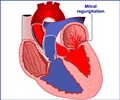People need not die of infective endocarditis, a heart problem. If only diagnosed early, lives can be saved.
People need not die of infective endocarditis, a heart problem. If only diagnosed early, lives can be saved.
Endocarditis is an infection of a heart valve and has an 18 per cent in-hospital mortality rate; a rate that has not changed in the last 25 years. The one-year mortality rate is even worse, approaching 40 per cent. It also has other serious health impacts such as stroke, blood clots, heart failure and other ongoing complications.Today it is probably more of an acute disease than it used to be, researchers say.
A definitive international study led by New Zealand clinicians and scientists has shed new light on the potentially fatal disease.
The study reveals that the bacterium Staphylococcus aureus is the most common cause of IE in much of the world, and that IE commonly follows degeneration of the heart valves with aging. This is in contrast to earlier studies that linked it to heart valve damage following rheumatic fever in younger age groups.
An important finding is that early surgery is associated with a decreased risk of dying.
Also the study concludes that some of the classical clinical features of IE that are taught to all medical students now only occur in a minority of patients.
Advertisement
"What this study does is that it enables us to be much more definitive about the contemporary causes of this serious disease and how to better treat it and reduce the stubbornly high mortality rate," he says.
Advertisement
One of the more interesting findings is that 25 per cent of patients with IE contracted the bacterial infection following health care, or after invasive medical care, particularly in the USA.
This is relevant in New Zealand with an ageing population which is likely to be exposed to more hospital care. About 300 people are hospitalised in New Zealand every year with infective endocarditis and the study shows that internationally 50 per cent undergo heart valve replacement surgery.
The research is published in the Archives of Internal Medicine. The New Zealand arm of the study involved hospitals in Auckland, Wellington and Christchurch.
Source-Medindia
GPL/L














